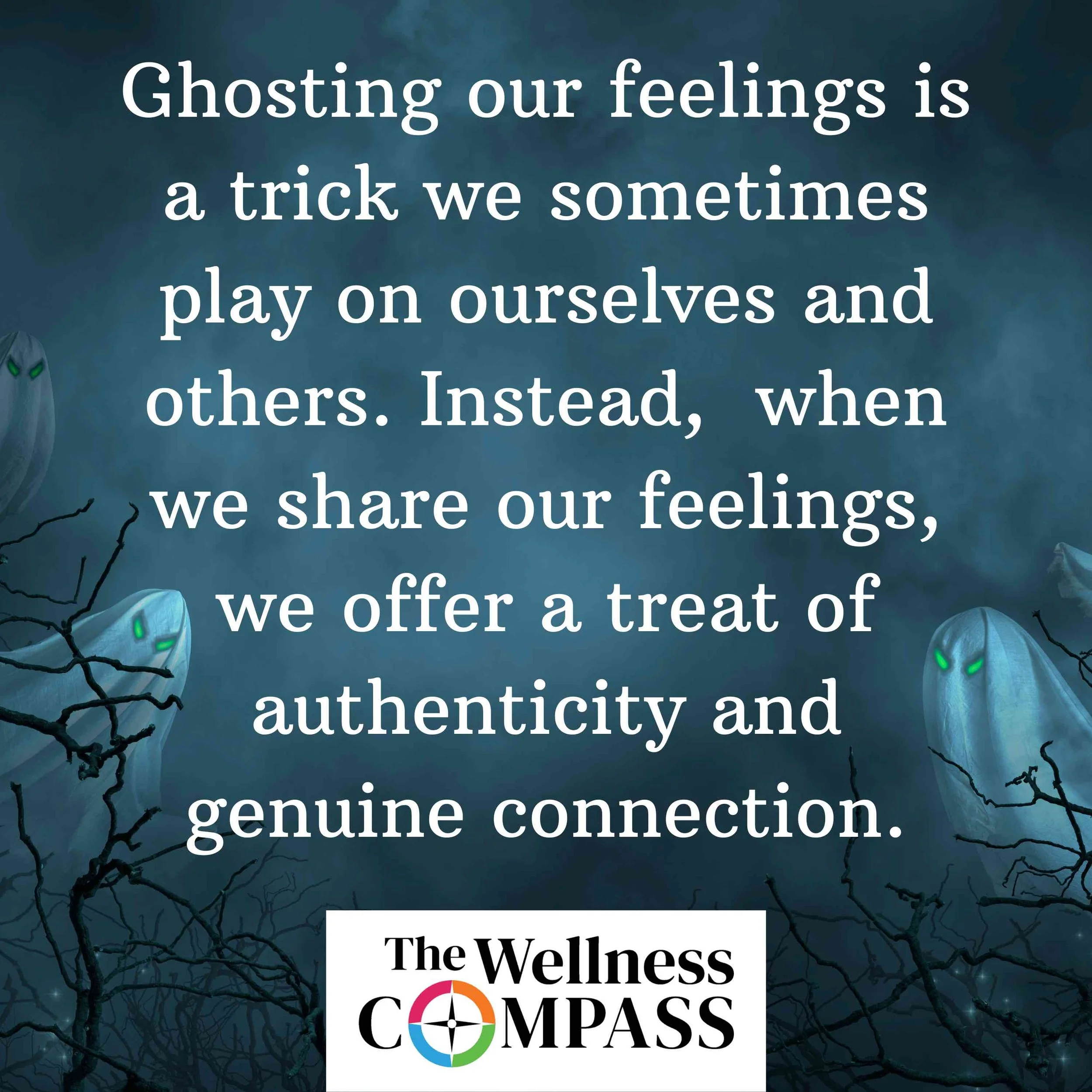(Click on the player at the top to listen to this ten-minute episode)
What follows is the weekly column we email every Friday that is a companion to this weekly podcast. This podcast episode expands on the content of the column.
Don’t Ghost Your Feelings!
We met with a group of school counselors recently, and the words on the T-shirts caught our attention: “Don’t Ghost Your Feelings. Instead, Share Them with Others.” October is National Depression Awareness Month, and with Halloween taking place in October, they had found a fun way to communicate an important message to their students.
The word “ghosting” became popular a decade ago and even entered the Webster dictionary in 2017. It originated as a term in the online dating world to describe a person who suddenly ends all communication with someone with whom they had been talking. They no longer respond to texts, emails, or calls, having given no explanation for their becoming like “ghosts” and completely disappearing. People willing to talk about why they ghosted someone have usually stated that they were too uncomfortable communicating openly and honestly with others, so they found it easier to ignore the topic or the person completely.
The term ghosting has been expanded to include completely ignoring or avoiding an uncomfortable topic. So, for example, we sometimes hear comments like, “Whenever I say I want to talk about our finances, you ghost me.” This means the person who doesn’t want to talk about finances isn’t being argumentative —they are just disappearing, pretending like they didn’t even hear the other person.
Returning to the school counselors’ T-shirts, ghosting one’s feelings means acting like they don’t exist. Instead of ghosting, the school counselors regularly teach how to become comfortable with the full range of emotions so that students can become more skilled at both feeling and expressing what they are feeling. They are encouraging them to do so even when doing so makes them feel quite vulnerable.
The wise wisdom offered by the school counselors is good advice for all of us. Halloween may be over, but the wisdom of not ghosting our feelings remains relevant all year.
Trick or treat? Ghosting our emotions can be a trick we play on ourselves and others. Becoming more comfortable expressing our feelings, on the other hand, is a treat we can give ourselves and our relationships.
As always, we love to hear from you. You can email us at
connect@wellnesscompass.org, or through our Wellness Compass Facebook page.
Sign up for Your Weekly Wellness Compass to receive weekly an email each week that announces when a new podcast episode has been released and also includes a transcription of the episode for those who prefer to read instead of listen. Each episode is designed to help you for navigate your week ahead with clear attention and intention.
ABOUT THE CREATORS:
Holly Hughes Stoner, LMFT and Scott Stoner, LMFT, are both licensed marriage and family therapists who are partners in life and in work. They are the Co-Directors and Co-Creators of the Wellness Compass Initiative, a non-profit initiative that crates preventative wellness materials for adults, families, and teens. They live in Madison, Wisconsin and are the parents of three adult children and are blessed with two grandchildren, as well.





